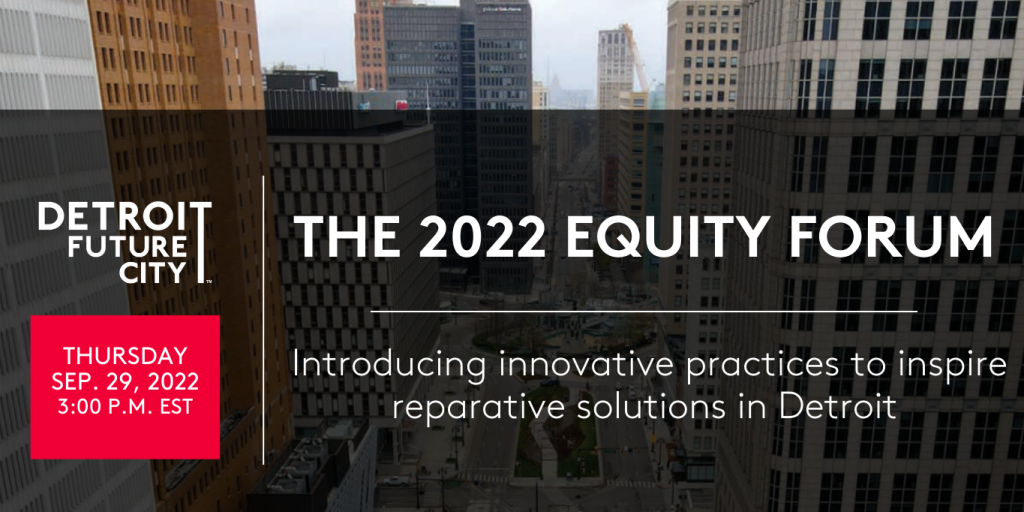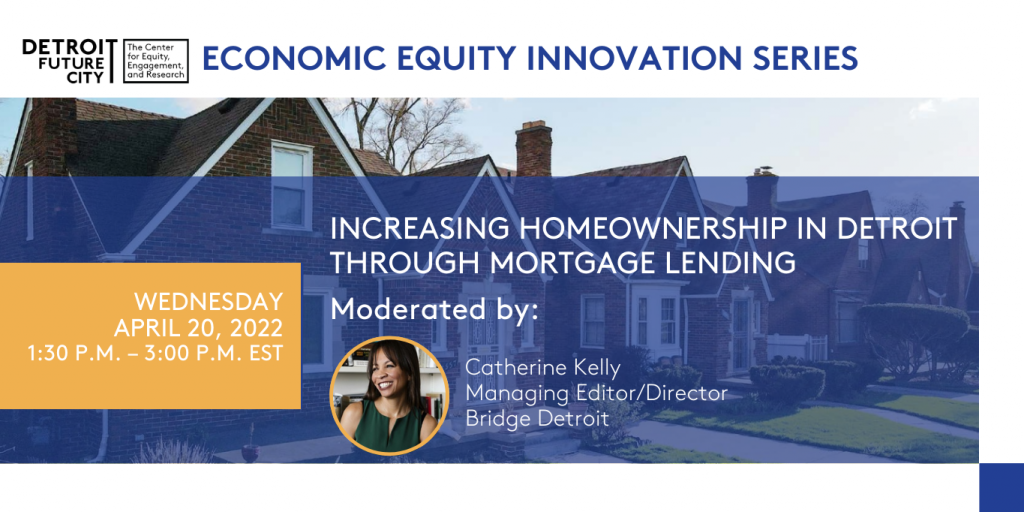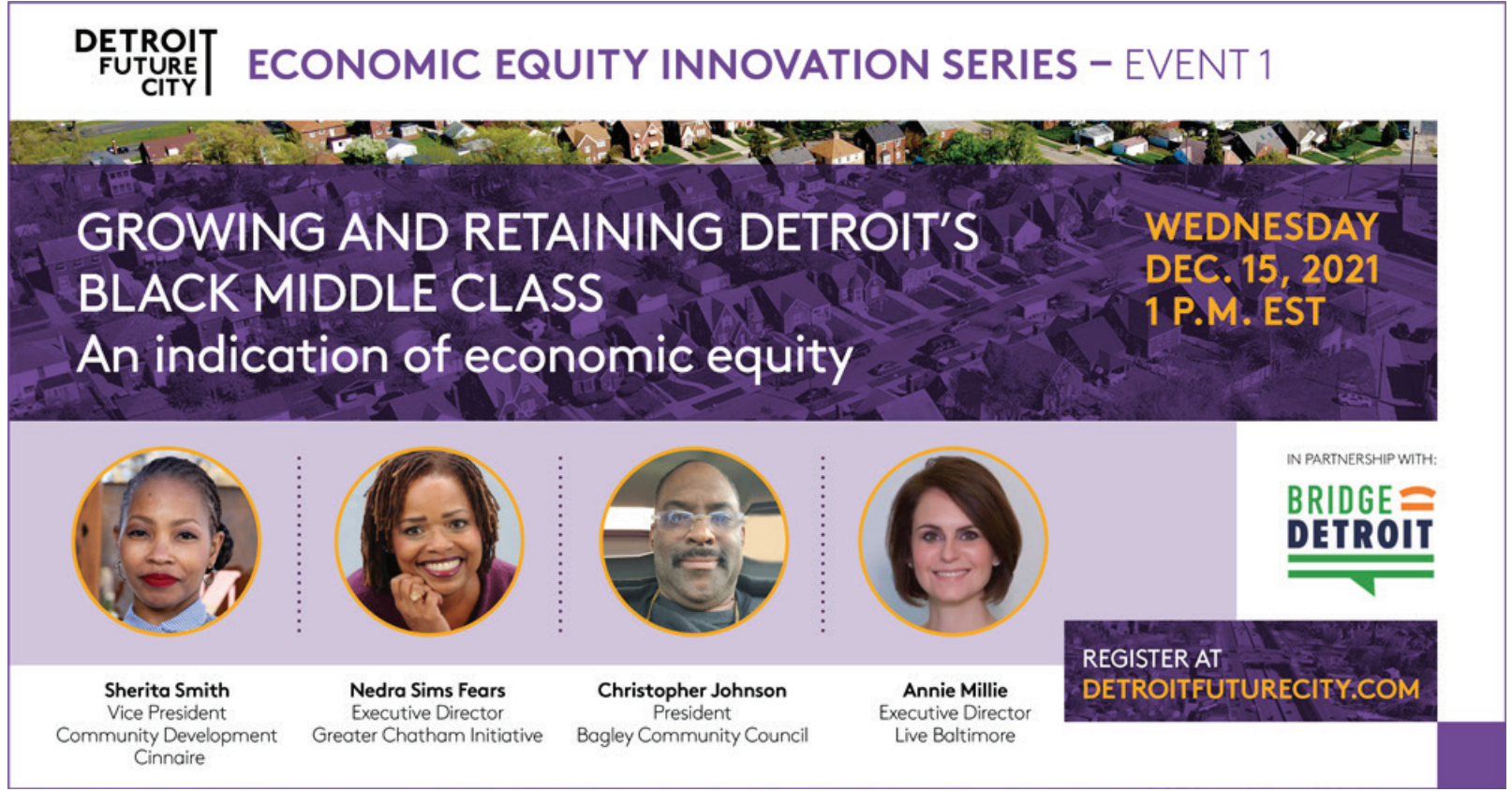The Innovation Series seeks to inform, inspire, challenge, and activate cross sector innovation to advance economic equity in Detroit and the region. Following the robust engagement that informed the development of the State of Economic Equity in Detroit report, the series will be centered on creating an economically equitable Detroit and region where residents can meet their unique needs, and fully and fairly participate in all aspects of economic life.

Detroit Future City (DFC) is hosting its third annual Equity Forum, bringing the community together to inspire innovative ideas and collective action. During this year’s event DFC’s CEO, Anika Goss, will introduce the organizations new strategic plan, which highlights how DFC will work to collectively build a prosperous city with a just and inclusive economy by leading initiatives that disrupt systemic racism to grow wealth for black Detroiters and other Detroiters of color.
Register today for a conversation that intends to inspire action that will advance economic equity and overall quality of life for all Detroiters. During this event, a dynamic panel moderated by Orlando Bailey will include Dr. Julian Agyeman, Professor of Urban and Environmental Policy and Planning at Tufts University, and Nathaniel Smith, Founder and Chief Equity Officer of Partnership for Southern Equity (PSE), will explore the ideas of reparative policy and planning, a revolution of values, and strategies to advance economic equity.

As Detroit continues to work toward achieving economic equity, addressing homeownership rates will be a critical component. To do this we must provide better access to one of the primary pathways to homeownership, the home purchase mortgage.
During this event, DFC shared current trends, challenges, and solutions in Detroit’s home purchase lending followed by a moderated discussion with a panel of experts that shared insights from their work and from the lived experiences Detroit home buyers.

Since 2010, Detroit has seen little to no growth in its middle-class, resulting in one of the lowest shares of middle-class households in the country. As Detroit works towards a more economically equitable future, it is important to grow and retain Detroit’s African American middle class.
The Center team participated in a discussion on why growing and retaining the African American middle class in Detroit is an indication of economic equity and hear from local and national leaders that will share innovative examples of approaches to growing middle class neighborhoods.